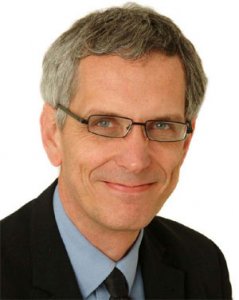SUNDAY, 4 DECEMBER 2011
Government and Science. The two often have an interesting relationship; long term predications and concerns, such as those associated with climate change, do not always fit into a party’s timeframe, namely the four year term in office, and the subtleties of scientific discoveries and findings are not always suited to the government and the media’s strong rhetoric of right, wrong and simple causation. However this perception is not always true and this event sought to demonstrate the complex advisory system put in place which establishes Britain at the forefront of scientific development.Professor David Clary FRS is a highly eminent professor of Chemistry at Oxford University and president of Magdalen College. He is also the chief scientific advisor to the foreign office, the first person to hold this position. In this lecture he talked about his role, what it entails and the main focus of his efforts which he achieves through liaising with the chief scientific advisors placed in every government department.
I didn’t know what to expect either from the Centre for Science and Policy, (the event organisers) or a chief scientific advisor, so I arrived at the event with an open mind and a coat proudly bearing a name badge with the tagline Blu Sci Magazine. Upon arrival my badge was greeted by many others bearing the names of many official organisations attached to smart suits and even smarter people; clearly what Professor Clary had to say was going to be interesting, engaging and important.
Although the talk was given very much in a lecture style with dense powerpoint slides of text, perhaps not what you need after a long day of nat sci, it did not disappoint. Climate change, encouragingly, was the first issue he addressed, citing the action of Gordon Brown and David Miliband in the last administration as crucial to bringing the issue to the political forefront. This is, apparently, where it is remaining, and his work in this area involves understanding and advising the foreign secretary as well as liaising with a plethora of others to ensure effective policy development. Related to this is the matter of sustainable energy. This is highly relevant, particularly with the upcoming UN climate summit focusing in part on the ‘greening’ of the economies and technologies of rapidly developing BASIC nations, Brazil, South Africa, India and China.
Throughout the talk the combination of science and foreign policy were clearly explained and thinking about science in the context of world affairs was, to me, a novel viewpoint. Nowhere was this highlighted more when Professor Clary discussed at length the use of science collaboration as a tool of diplomacy. The exchange of ideas and knowledge in addition to the physical exchange of scientists in foreign labs can be used to improve international relations. Through his advisory capacity Professor Clary was keenly promoting this through an organisation called the Science and Innovation Network and through negotiation about current immigration rules which may inhibit this exchange.
Professor Clary came across as astute, knowledgeable and very capable, but was he a scientist or a politician? Undoubtedly he is a leader in his field and a great theoretical and practical scientist, but some of the answers he gave to some tricky questions were incredibly slick and clearly indicated the art of a practised politician; diplomatic, confident and elusive. This indeed was why the lecture was so engaging as it gave me insight into the science of policy making and the personality types who make up, what he described as, ‘the best scientific advisory mechanism in the world’. If you too are interested in the processes and influences which shape our government I would certainly recommend future Centre for Science and Policy events.
Written by Ellen Brookes

